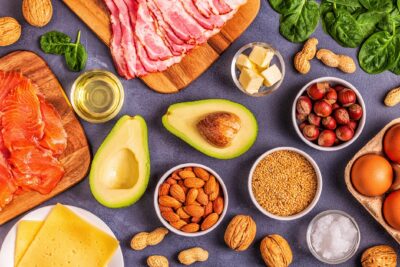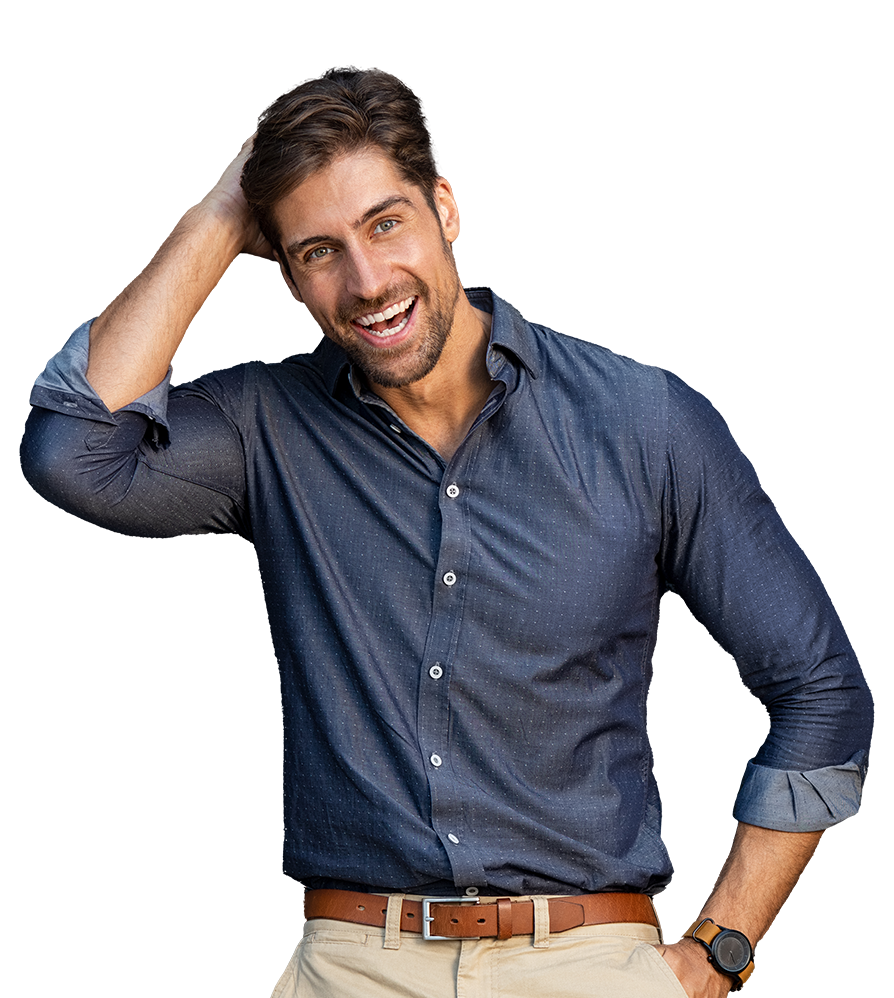For many, the ketogenic (or keto) diet can be an effective way to lose weight.  But like all diets, it isn’t without its share of potential side effects, including a change in the health and condition of your hair, and even hair loss. Fortunately, there are steps you can take to reduce and even eliminate that risk.
But like all diets, it isn’t without its share of potential side effects, including a change in the health and condition of your hair, and even hair loss. Fortunately, there are steps you can take to reduce and even eliminate that risk.
Of course, before starting any diet or exercise regimen, consult your primary health doctor.
A ketogenic diet is very low in carbs and high in fat content. It involves drastically reducing your carb intake and replacing it with fat. When your body starts using fat instead of carbohydrates for fuel, you enter a metabolic state called ketosis.
The state of ketosis can trigger changes in your hair’s health as well as hair loss. Here are the two most common causes:
- When you reduce the calories you consume, your body responds by using energy to support the most important functions first, like heart, lungs and other organs, and cell growth.
- When limiting intake of carbs, you may be reducing some of the nutrients your body needs to maintain healthy hair.
Important Nutrients for Healthy Hair
If you’re adhering to a keto diet, you may not be getting some of the key nutrients essential for hair health. Look for ways to add more of the following to your diet:
Biotin – Foods that are a good source of biotin and still mesh with a keto diet include egg yolks, nuts, cauliflower, and mushrooms.
Vitamin C – Vital for a strong immune system and overall health, vitamin C also helps produce collagen, which is needed to maintain healthy skin and hair. Yellow peppers, Brussel sprouts, kale, and mustard spinach are just some of the foods high in vitamin C that work with keto.
Vitamin D – Vitamin D helps boost calcium absorption to promote healthier hair. In addition to sunlight, keto-friendly sources of vitamin D include fatty fish, tuna, mushrooms, and egg yolks.
Vitamin E – Another great antioxidant, vitamin E can be found in nuts, sunflower seeds, spinach, tomatoes, and avocados.
Iron – Low iron levels can lead to dry, damaged hair and other health concerns including headaches, fatigue, and shortness of breath. Include shellfish, red meat, dark turkey meat, pumpkin seeds, and spinach in your diet to reduce your risk of an iron deficiency.
Sounds like a lot to remember, right? Well, the human body is a complex machine that needs constant looking after. But once you get the hang of things – including steps that keep your head of hair full and healthy – the process is likely to become second nature. For more information, contact DiStefano Hair Restoration Center today.


